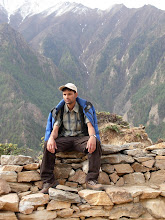An unacceptable number of species are still being lost forever despite world leaders pledging action to reverse the trend, a report has warned. The International Union for the Conservation of Nature (IUCN) says the commitment to reduce biodiversity loss by 2010 will not be met. It warns that a third of amphibians, a quarter of mammals and one-in-eight birds are threatened with extinction.
The analysis is based on the 44,838 species on the IUCN Red List. "The report makes for depressing reading," said co-editor Craig Hilton Taylor, manager of the IUCN's Red List Unit.
"It tells us that the extinction crisis is as bad, or even worse than we believed.
"But it also shows the trends these species are following and is therefore an essential part of decision-making processes."
The main policy mechanism to tackle the loss is the Convention for Biological Diversity (CBD), which came into force in 1993 with three main aims:
• To conserve biological diversity
• Use biological diversity in a sustainable fashion
• Share the benefits of biological diversity fairly and equitably
Currently, 168 nations are signatories to the convention, which set the target "to achieve by 2010 a significant reduction of the current rate of biodiversity loss at the global, regional and national level".
The analysis is based on the 44,838 species on the IUCN Red List. "The report makes for depressing reading," said co-editor Craig Hilton Taylor, manager of the IUCN's Red List Unit.
"It tells us that the extinction crisis is as bad, or even worse than we believed.
"But it also shows the trends these species are following and is therefore an essential part of decision-making processes."
The main policy mechanism to tackle the loss is the Convention for Biological Diversity (CBD), which came into force in 1993 with three main aims:
• To conserve biological diversity
• Use biological diversity in a sustainable fashion
• Share the benefits of biological diversity fairly and equitably
Currently, 168 nations are signatories to the convention, which set the target "to achieve by 2010 a significant reduction of the current rate of biodiversity loss at the global, regional and national level".
Jean-Christophe Vie, deputy head of the IUCN's Species Programme, warned that the scale of "wildlife crisis" was far worse than the current global economic crisis.
"It is time to recognise that nature is the largest company on Earth working for the benefit of 100% of humankind," he said. "Governments should put as much effort, if not more, into saving nature as they do saving economic and financial sectors.
"When governments take action to reduce biodiversity loss, there are some conservation successes but we are still a long way from reversing that trend."
The assessment lists 869 species as Extinct or Extinct in the Wild. Overall, the report categorises at least 16,928 species as being threatened with extinction.
"All of the plants and animals that make up Earth's amazing wildlife have a specific role and contribute to essentials like food, medicine, oxygen, water," said Mr Vie. "We need them all, in large numbers. We quite literally cannot afford to lose them."
"It is time to recognise that nature is the largest company on Earth working for the benefit of 100% of humankind," he said. "Governments should put as much effort, if not more, into saving nature as they do saving economic and financial sectors.
"When governments take action to reduce biodiversity loss, there are some conservation successes but we are still a long way from reversing that trend."
The assessment lists 869 species as Extinct or Extinct in the Wild. Overall, the report categorises at least 16,928 species as being threatened with extinction.
"All of the plants and animals that make up Earth's amazing wildlife have a specific role and contribute to essentials like food, medicine, oxygen, water," said Mr Vie. "We need them all, in large numbers. We quite literally cannot afford to lose them."



No comments:
Post a Comment